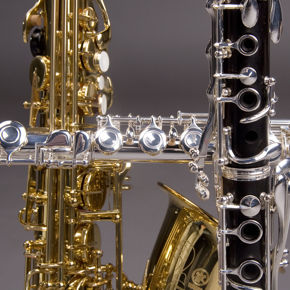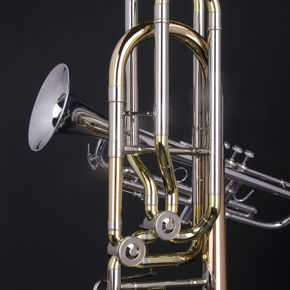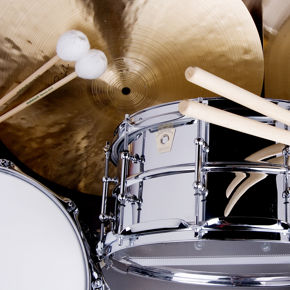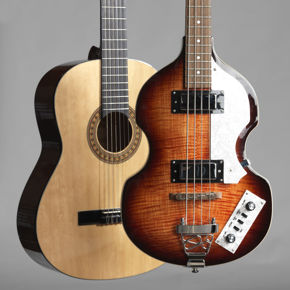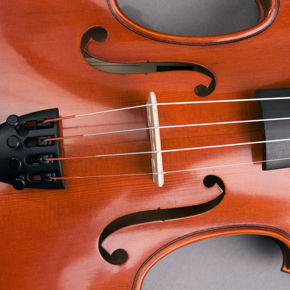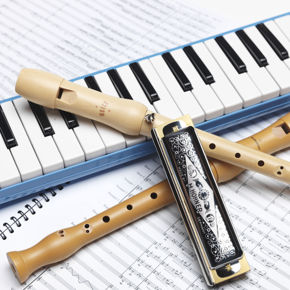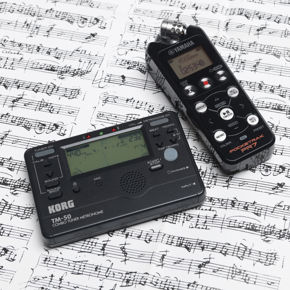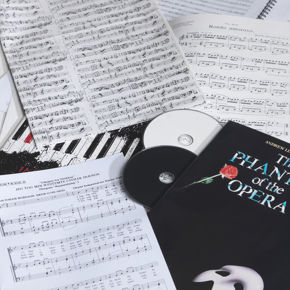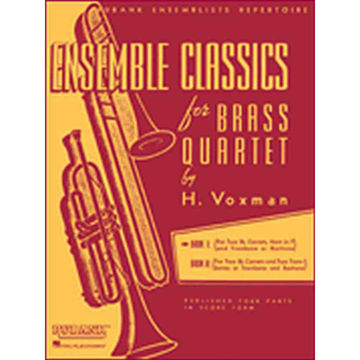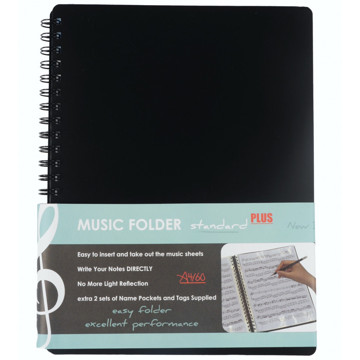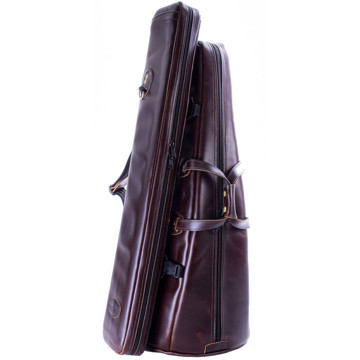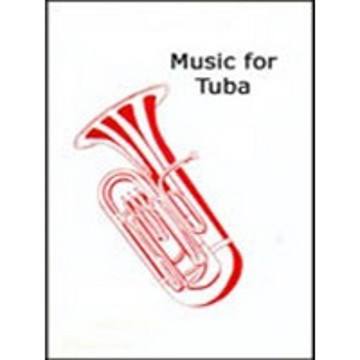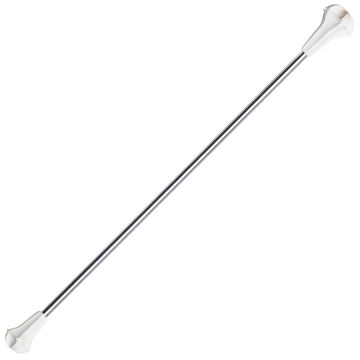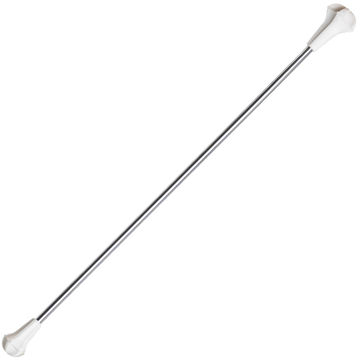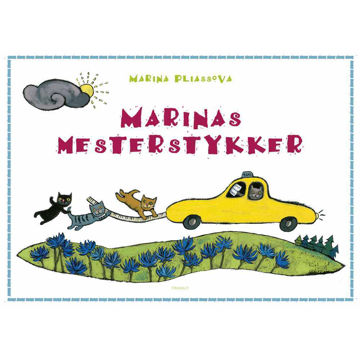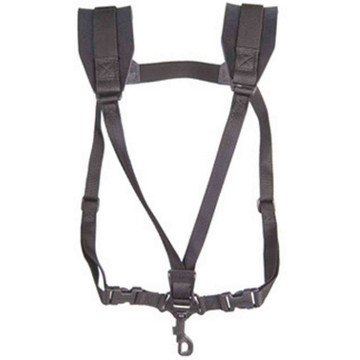Menu
Søk
Personal menu
Close
- Produkter
- Fabrikat/Forlag
- Nyheter
- Min side
- Kontakt oss
- Outlet
Menu
- Produkter
- Fabrikat/Forlag
- Nyheter
- Min side
- Kontakt oss
- Outlet
Relaterte produkter
Varen er på lager
Salvation Army Instrumental Album No.4 - Eight Quartettes
Includes: Supplication; God is a spirit; Happiness; The Peace of God; The long day closes; Old Favourites; At Rest; National Airs, No.2 - ScotlandInstrumentation: 2 Cornets, Eb Horn & Euphonium (Bb)
269 kr
249 kr
Varen er på lager
Eight for a Start op. 157a, Cornet, Eb Horn & Piano. Christopher D. Wiggins
EIGHT FOR A START Wiggins, ChristopherThis Eight for a Start collection provides eight different Duets for brass/windinstruments and Piano by Christopher Wiggins. These are great for younger students and you can pick any of the eight different pieces Including:FanfareWaltzBalladTime For FiveSerenadeMoto PerpetuoSong without WordsCarousel
210 kr
Varen er på lager
Ensemble Classics for Brass Quartet by H. Voxman, Vol. 1
Easy- to medium-level arrangements of favorite classics for brass quartet (two trumpets or cornets, F horn, and trombone or baritone B.C.) in score format. Includes short arrangements of works by Elgar, Bach, Smetana, Mozart, Schumann, Brahms and more.Careful training in small groups is a decided step toward the mastery of the basic fundamentals of rhythm, precision, balance, and intonation. - H. Voxman Includes score and parts. Song List:As Torrents In Summer(King Olav)Autumn SongCelebration Of SpringChorale (from ANNA MAGDALENA NOTEBOOK)Chorus Of The Peasants(B.Bride)Divine Praise (Bortniansky)Dream,The (Schumann)Farewell Op 93a #4 (Brahms)FinlandiaHere Is A Fish Fat And FineHumpbacked Fiddler, TheIn Modo Religioso (Glazounow)March Of Priests (Mozart)O Worship The KingPoor Mourner's Got A HomeRequiem, Theme From (Verdi)Rinaldo's Aria (Handel)Somebody's Knockin At Your DoorTheme (Borodin A)Which Is Properest Day To Sing
145 kr
Varen er på lager
Quintet No. 1 Opus 5, Score and Parts. Ewald/Tarr
Instrumentation: 2 Cornets, E flat Alto Horn, B flat Tenor Horn, TubaDifficulty (I-VI): IV Parts for: Parts I + II: Cornet (Trumpet) in B flat Part III: Alto Horn in E flat; Horn in F Part IV: Tenor Horn in B flat; Trombone Part V: Tuba Series: Edward Tarr Brass Editor: Edward H. Tarr Victor Ewald was born in St. Petersburg on November 27, 1860, and died there (the city now being called Leningrad) on April 16, 1935. He was an engineer by profession; from 1895 to 1915 he was professor at the Institute of Civil Engineering, continuing the practice of his profession after the 1917 revolution as well. He was also interested in Russian folk music, taking part on expeditions to northern Russia to gather folk songs. He was, in addition, a wellknown violoncellist in the salons of the St. Petersburg nobility, notably in the circle of Mitrofan Petrovich Belaiev (1836 - 1904). Belaiev will go down in history as a music publisher for his support of a host of Russian composers, among them not only great ones such as Balakirev, Borodin, Cui, Glazunov, Mussorgsky, Rimsky-Korsakov, Tchaikovsky, and Nicholas Tcherepnin, but also others such as Ewald. Belaiev also subsidised a series of 14 annual concerts of Russian music in St. Petersburg. More important for Victor Ewald were the Friday evening string quartet sessions held in Belaiev's house, the publisher himself playing the viola, Ewald the cello. Its allencompassing repertoire included all the quartets of Haydn, Mozart, and Beethoven, as well as newer works. The sessions started before dinner and always continued until well into the night, never ending before 3 in the morning. According to the testimony of Rimsky-Korsakov, himself a frequent visitor, the Friday evening sessions had started some time before 1883, with the number of visitors increasing during the winter of 1883-1884. Among these were Borodin, Glazunov, Sokolov, and others. Sokolov, a teacher at the St. Petersburg Conservatory, was one of Ewald's composition teachers. In addition, we can infer that Ewald must have received much of his undisputed craftsmanship and sense of form from the training, formal or informal, in the Belaiev circle. His first known work is a string quartet, Opus 1, which was awarded a third prize in a competition of the St. Petersburg Quartet Society in March, 1893. (The judges were Tchaikovsky, Laroche, and Rimsky-Korsakov, the prize money came from Belaiev.) It was published by Belaiev in 1894. Several other works followed, a Romance, Opus 2, and Deux morceaux, Opus 3, for cello and piano (1894), and a string quintet, Opus 4 (1895). In that year, which was also the year in which he was appointed professor, he apparently ceased composing for a time. Rimsky-Korsakov also reports that by then, the Friday evening quartet sessions had begun to suffer a certain stagnation. In 1899 he did write one piece, the eighth variation (Andante cantabile) of a collective work, Variations sur une theme populaire russe for string quartet, one of the other composers being Scriabin. His next published work, the Brass Quintet No. 1 in B flat Minor, Opus 5, was printed in 1912.1 It was the only one of his three brass quintets to be published during his lifetime. Ewald's Brass Quintets No. 2 in E flat Major, Opus 6, and No. 3 in D flat Major, Op. 7, remained in manuscript and only came to light in the mid-1970s. The original instrumentation of Ewald's three brass quintets is: 2 cornets in B flat, alto horn in E flat, tenor horn in B flat, and tuba. In the present edition, the score is written in concert pitch, and there are several alternatives in the set of parts, to facilitate performance either on the original instruments, the instruments of the modem brass quintet, or whatever.
369 kr
Varen er på lager
Divertimento, Philip Sparke. Ten-Piece Brass
DIVERTIMENTO (PHILIP SPARKE) (10 PIECE)Publisher: S tudio MusicComposer: Sparke, PhilipSeries: Music for Brass EnsembleCode: M050085065Please note: This is a facsimile (HANDWRITTEN) set. Commissioned by Howard Snell Brass with friends. Includes: FanfareOverture WaltzLamentFinaleFanfareInstrumentation: Cornet 1; Cornet 2; Cornet 3/4; Eb Horn; Bb Baritone TC; Bb Euphonium TC; Bb Trombone TC; Bass Trombone; Eb Bass TC; Percussion. Duration 14:58Recorded on Polyphonic CD QPRZ005D PREMIERE (Howard Snell Brass)
970 kr
Varen er på lager
Big Spender, Cy Coleman arr. James Christensen. Low Brass Ensemble
Low Brass Ensemble (w/opt. rhythm section)F Horn 1,2Trombone 1,2BaritoneTubaPiano (Opt.)Bass (Opt.)Drums (Opt.)
480 kr
Varen er på lager
Quintet No. 2 Opus 6, Score and Parts. Ewald/Tarr
Instrumentation: 2 Cornets, E flat Alto Horn, B flat Tenor Horn, TubaDifficulty (I-VI): V Parts for: Parts I + II: Cornet (Trumpet) in B flat Part III: Alto Horn in E flat; Horn in F Part IV: Tenor Horn in B flat; Trombone Part V: Tuba Series: Edward Tarr Brass Editor: Edward H. Tarr Victor Ewald was born in St. Petersburg on November 27, 1860, and died there (the city now being called Leningrad) on April 16, 1935. He was an engineer by profession; from 1895 to 1915 he was professor at the Institute of Civil Engineering, continuing the practice of his profession after the 1917 revolution as well. He was also interested in Russian folk music, taking part on expeditions to northern Russia to gather folk songs. He was, in addition, a wellknown violoncellist in the salons of the St. Petersburg nobility, notably in the circle of Mitrofan Petrovich Belaiev (1836 - 1904). Belaiev will go down in history as a music publisher for his support of a host of Russian composers, among them not only great ones such as Balakirev, Borodin, Cui, Glazunov, Mussorgsky, Rimsky-Korsakov, Tchaikovsky, and Nicholas Tcherepnin, but also others such as Ewald. Belaiev also subsidised a series of 14 annual concerts of Russian music in St. Petersburg. More important for Victor Ewald were the Friday evening string quartet sessions held in Belaiev's house, the publisher himself playing the viola, Ewald the cello. Its allencompassing repertoire included all the quartets of Haydn, Mozart, and Beethoven, as well as newer works. The sessions started before dinner and always continued until well into the night, never ending before 3 in the morning. According to the testimony of Rimsky-Korsakov, himself a frequent visitor, the Friday evening sessions had started some time before 1883, with the number of visitors increasing during the winter of 1883-1884. Among these were Borodin, Glazunov, Sokolov, and others. Sokolov, a teacher at the St. Petersburg Conservatory, was one of Ewald's composition teachers. In addition, we can infer that Ewald must have received much of his undisputed craftsmanship and sense of form from the training, formal or informal, in the Belaiev circle. His first known work is a string quartet, Opus 1, which was awarded a third prize in a competition of the St. Petersburg Quartet Society in March, 1893. (The judges were Tchaikovsky, Laroche, and Rimsky-Korsakov, the prize money came from Belaiev.) It was published by Belaiev in 1894. Several other works followed, a Romance, Opus 2, and Deux morceaux, Opus 3, for cello and piano (1894), and a string quintet, Opus 4 (1895). In that year, which was also the year in which he was appointed professor, he apparently ceased composing for a time. Rimsky-Korsakov also reports that by then, the Friday evening quartet sessions had begun to suffer a certain stagnation. In 1899 he did write one piece, the eighth variation (Andante cantabile) of a collective work, Variations sur une theme populaire russe for string quartet, one of the other composers being Scriabin. His next published work, the Brass Quintet No. 1 in B flat Minor, Opus 5, was printed in 1912.1 It was the only one of his three brass quintets to be published during his lifetime. Ewald's Brass Quintets No. 2 in E flat Major, Opus 6, and No. 3 in D flat Major, Op. 7, remained in manuscript and only came to light in the mid-1970s. The original instrumentation of Ewald's three brass quintets is: 2 cornets in B flat, alto horn in E flat, tenor horn in B flat, and tuba. In the present edition, the score is written in concert pitch, and there are several alternatives in the set of parts, to facilitate performance either on the original instruments, the instruments of the modem brass quintet, or whatever.
610 kr
Andre kjøpte også
Varen er på lager
Notemappe - Innovative Music Folder Standard A4/40
INNOVATIVE MUSIC FOLDEREn utrolig smart notemappe! 20 sider med plass til 40 ark (for/bakside).Sidene er åpen i midten slik at man kan skrive direkte på noten uten å måtte ta dem ut av plasten.Du unngår lysrefleksjon fra plastomslaget.Lomme for navnelapp (2 lapper følger med)DESCRIPTIONInnovative Music Folder 'Standard' A4/40 good to know: for DIN A4 / 20 sheets (40 pages)SPECIFICATIONSInstrument Group GiftsProduct Type FolderBrand Agifty.AtYear of Publication 2021EAN 9006061019129Edition Number F 1019No. AGFTYF1019
215 kr
Varen er på lager
Notemappe - Innovative Music Folder Standard Plus A4/60
INNOVATIVE MUSIC FOLDER En utrolig smart notemappe! 30 sider med plass til 60 ark (for/bakside).Sidene er åpen i midten slik at man kan skrive direkte på noten uten å måtte ta dem ut av plasten.Du unngår lysrefleksjon fra plastomslaget.Lomme for navnelapp (2 lapper følger med)DESCRIPTIONInnovative Music Folder 'Choir' A4/60 good to know: for DIN A4 / 30 sheets (60 pages)
235 kr
Varen er på lager
Gig Bag Trombone Tenor Long Cronkhite 2-Piece Travel Chocoalte Brown Leather
FOR OPEN WRAP TENOR TROMBONE OR BASS TROMBONE WITH 9,5'' BELLPLEASE NOTE: These travel cases are made with our Standard Slide Case, which will fit up to a 32? slide. If your slide is longer than that (up to 34.5?), you will need our Euro Slide Case. If you need the Euro Case, please let us know in the customer notes section upon orderingCronkhite gig bager blir sydd på Torpedobag sin fabrikk i Minneapolis, USA.Materialet er skinn og er av svært god kvalitet. Baggene blir sydd på bestilling og minimum 3-4 ukers leveringstid må påregnes dersom varen er på fjernlager.This is the original Glenn Cronkhite-designed bag that dates back to the 1970s. Some of the original bags are still in use today! Made in the USA using only the finest 'Top Grain' leathers and durable 1000D genuine Cordura fabrics, you can be assured that your instrument is well protected in a well made bag.ProtectionAn inch of high-density foam surrounds your instrument.The exterior is made from either a top quality leather, or the best US-made genuine Cordura fabrics.DurabilityThis bag is famously known to last for decades without issues.Huge YKK main zippers.Solid brass rivets and T138 polyester threads for longevity.The finest metal and delrin hardware.CapacityOne instrument One zippered side pocket for convenient storage.IncludedOne 2 inch wide shoulder strap.DesignThis is the original Glenn Cronkhite design that dates back to the 1970s!It features perfect portability in a lightweight bag for easy transport wherever you are headed.ExteriorWe use only the finest top grain leathers. Choose from smooth black, pebbled black, a deep chocolate brown, cinnamon, or a stylish British Tan.Our 1000D Cordura choices include Black, Brown, Burgundy, Red, Dark Blue, Forest Green, Grey, and Tan.Our nylons are US-made genuine Cordura, which is one of the most durable fabrics ever invented. Its abrasive strength is unmatched, and is almost always considered Military Spec, when others arent good enough.RecommendationStudents and professionals who want the original (and still the best!) gig bag.
10805 kr
Varen er på lager
Drillstav Majestic 78.20, Twirling Baton Elegance, Chrome Plated, 50cm
Drillstav Majestic 78.20, Twirling Baton Elegance, Chrome Plated, 50cm
640 kr
580 kr
Varen er på lager
Drillstav Majestic 78.20, Twirling Baton Elegance, Chrome Plated, 55cm
Drillstav Majestic 78.20, Twirling Baton Elegance, Chrome Plated, 55cm
640 kr
580 kr
Varen er på lager
Marinas Mesterstykker 1 Marina Pliassova
Marinas mesterstykker En klaverskole helt utenom det vanlige! Marina Pliassova gir i denne fantastiske og kreative boken en morsom og instruktiv veiledning til klaverets vidunderlige verden og som leder nybegynneren over den første «terskelen» inn i utøverens verden. Krydret med korte, fyndige og opplysende kommentarer samt med vakre illustrasjoner gir boken en nødvendig baisiskunnskap for å spille klaver. Det forutsettes et tett samarbeid med en lærer, og nettopp her finner vi kanskje den viktigste grunnen til at fremstillingen virker levende: Fra første stund føres barnet inn i musikkens klang ved at læreren spiller varierte og kreative arrangementer sammen med eleven.Med Marinas mesterstykker 13 har Marina Pliassova skapt en spennende og instruktiv veiledning som fører den unge utøveren rett inn i klangenes fargesprakende verden. Marinas mesterstykker 2 fortsetter der del 1 slutter og lar eleven bli kjent med kvalitetsstykker fra mange tidsepoker, tradisjoner og sjangere, både klassisk og moderne.«Min pedagogiske 240erfaring har vist at det å oppnå tilfredsstillende progresjon, stiller store krav både til lærer og elev, til tålmodighet og vilje til å jobbe med detaljer. Viktigst av alt er imidlertid at barna har glede av musikken. Mange barn har fått ødelagt musikksmaken og gleden ved musikk gjennom å jobbe med feil repertoar. Barn bør vokse opp med musikalske perler fra alle epoker!» Marina Pliassova«Jeg skulle ønske jeg var barn igjen og kunne lære å spille klaver med Marinas mesterstykker!» Einar Steen-Nøkleberg, pianist og professor ved Norges musikkhøgskoleMarina Pliassova er utdannet pianist og klaverpedagog og arbeider i dag ved Barrat-Dues musikkinstitutt i Oslo. Hun er utdannet ved College of Art i Irkutsk og ved Statens musikkonservatorium i Novosibirsk. Marina har selv vunnet konkurranser i pianospill og har bred erfaring både som pianist og akkompagnatør; i dag er hun helt i tetsjiktet blant et knippe klaverpedagoger som stadig ser sin elever representert blant topplasseringene i nasjonale og internasjonale musikkkonkurranser. Foruten en stor gruppe russiske og norske barn og unge som har fått anledning til å stifte bekjentskap med klaveret gjennom Marinas fremragende pedagogikk, har hun i dag en rekke elever ved Talentskolen på Barrat-Due; hun holder masterklasser i inn- og utland; hun har et utstrakt samarbeid med pedagoger og pianister ved norske og utenlandske læresteder, og elevene hennes er stadig representert ved rekke konserter og festivaler, både som solister og kammermusikere.
249 kr
Varen er på lager
Rem Saksofon Neotech Soft Harness Sax Strap XL, Swivel Hook
Soft HarnessFits most saxophonesComfortable neoprene design fits men, women and youthEasy to attach with a unique swivel hook or loop connectorMADE IN THE USAThe revolutionary Soft Harness from Neotech uses neoprene reinforced with an elastic support system which carries the burden of a heavy saxophone while enhancing the musicians freedom of movement.Product DescriptionA saxophone harness that is not only functional but extremely comfortable! The patented weight reduction system of the Soft Harness uses neoprene reinforced with an elastic support system which carries the burden of a heavy instrument while enhancing the musician's freedom of movement. Musicians no longer have to be restricted by confining harness designs. The Soft Harness is ideal for musicians in marching bands or individuals with back or neck problems. Available with our popular swivel hook or a nonmarring tubular nylon connection system that offers an alternative to a traditional hook attachment. The loop connector is extremely strong, yet easy on the instrument's finish.Swivel hookThe leading cause of hook breakage is when a hook lodges sideways against the instrument putting excess torque and pressure on it. Neotech's updated Swivel Hook engages snugly on the instrument's strap ring. It features an alignment pin in the snap mechanism for better rigidity and a molded "fin" that helps the hook remain in the proper vertical position. This design minimizes the chance of the hook becoming lodged sideways and keeps the weight and pressure on the hook in the proper playing position.Strenght: Hook breaks at about 125 pounds (56 kg).
540 kr
Nyhetsbrev
Informasjon
Opphavsrett © 2025 Musikk-Miljø. Alle rettigheter reservert.
Powered by nopCommerce
Filters
Sort
display

